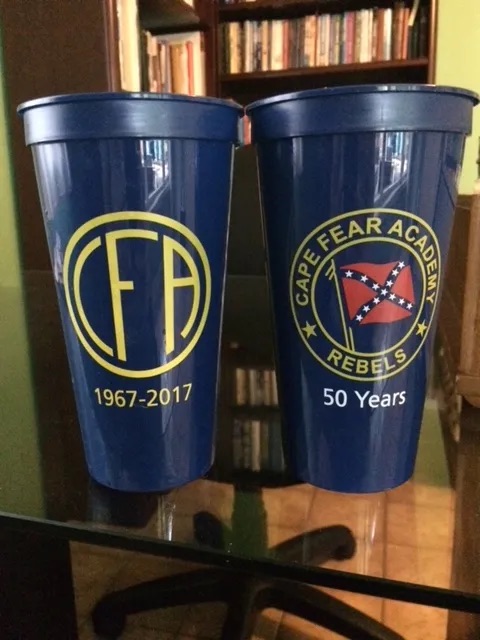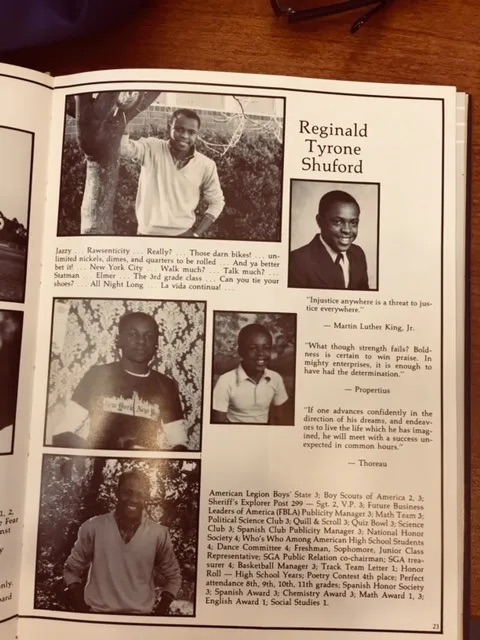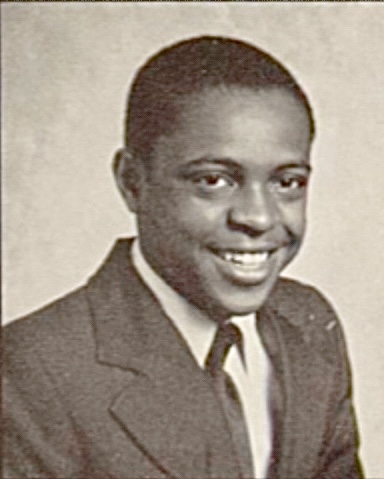Reginald Shuford-Class of 1984-Cape Fear Academy-Wilmington, North Carolina
I spent part of Memorial Day Weekend 2017 in my hometown, Wilmington, North Carolina, celebrating the fiftieth anniversary of my high school, Cape Fear Academy. CFA was created as a segregation academy, designed to avoid integration. Because of this history, I’m ambivalent about my experience there, just as I have been about this weekend’s activities (and Wilmington and North Carolina, in general).

When I graduated in 1984, I was the school’s first black graduate. There were and are many cool people affiliated with the school, but there were many who were not comfortable with my presence — a few fellow students and several parents, especially, were openly hostile to me. Others did a lot of talking behind my back. Yet, none of this was ever discussed or acknowledged. Not the history of racism and segregation in Wilmington, including the massacre of 1898 that decimated black businesses and the progress of the black community. Not the context in which the school was founded. I learned of the school’s history only after I transferred there from public school on an academic scholarship. The school mascot — the Rebels (later changed to the Hurricanes) — should have been a pretty clear sign, but such was the deafening silence surrounding it all that it took me a while to figure it out. Once I did, I stopped wearing anything with Rebels insignia, and my attitude towards the school soured, at least for a time.
Growing up in a housing project, with a single mother struggling to make ends meet, there were good things, too, about the school. CFA was academically rigorous, forced me to learn how to really study, and prepared me well for college. And a little spending money in my pocket didn’t hurt either. Most importantly, I formed several friendships that continue to this day.

So, I thought it was important to attend this weekend’s celebration. I knew that, no matter what, I would push for authentic conversations, including addressing both the history of the school and my experience there. And I raised the issue several times. Most conversations were cool and my perspective was well received, but I confronted one guy, who graduated a few years ahead of me, who had been the leader of a group of wealthy male students who engaged in racist and bullying behavior. He came up to me at Saturday’s event, the epitome of respect and politesse. I responded in kind but reminded him he had not always treated me so kindly. In fact, while I was speaking at high school graduation, he and some of his friends catcalled racist statements at me from the back of the auditorium. I didn’t hear him, but my brother and a few other friends did. When I raised this with him, he attempted to deny all of it, but I didn’t allow it. I reminded him that the one other black student who attended CFA before me left without graduating, after being bullied and harassed. I never raised my voice once, but it was very important to me that he know that I had not forgotten his behavior. I don’t do fake, nor revisionist history, so I had no interest in chatting with him about superficial stuff. I didn’t have the opportunity to confront him while in high school but, this time, I made sure I did. Of course, he was not the only one, but he was the ringleader. Over the course of the weekend, I simply chose to ignore several others of his ilk . . . and the unauthorized confederate flag cups they sneaked in after being told they could not bring them.
It was otherwise a mostly good experience, both while I attended CFA and the weekend’s celebrations. Unfortunately, over the course of the weekend, I saw only one other alumnus of color. Then as now, there were folks who appeared a bit leery of me, but most were very cool. Someone at the event asked me if my experience at CFA had informed my decision to become a civil rights lawyer. The truth is that it was not just CFA but my entire experience growing up in the South. And given the current state of things in N.C and beyond, there remains a lot of work to be done.
Reginald Shuford is executive director of the North Carolina Justice Center in Raleigh. He attended the University of North Carolina at Chapel Hill and University of North Carolina School of Law, where he was president of his law class. Twitter: @reggieshuford
